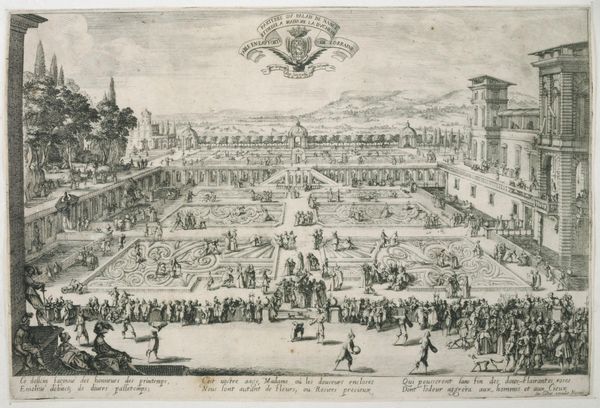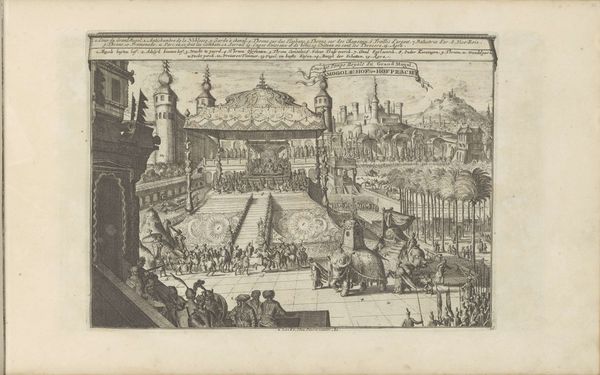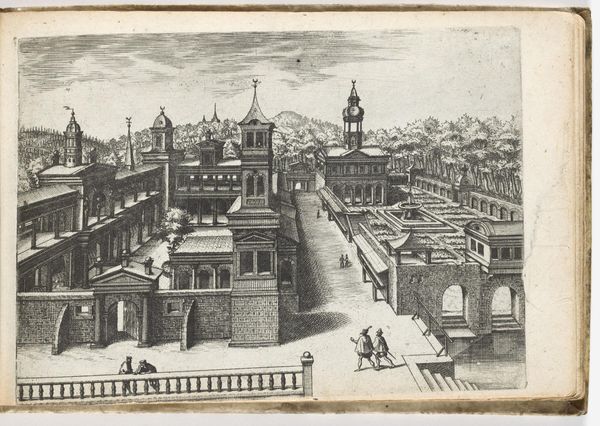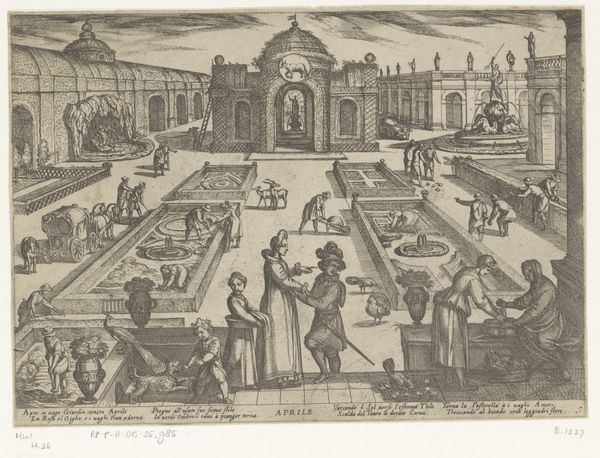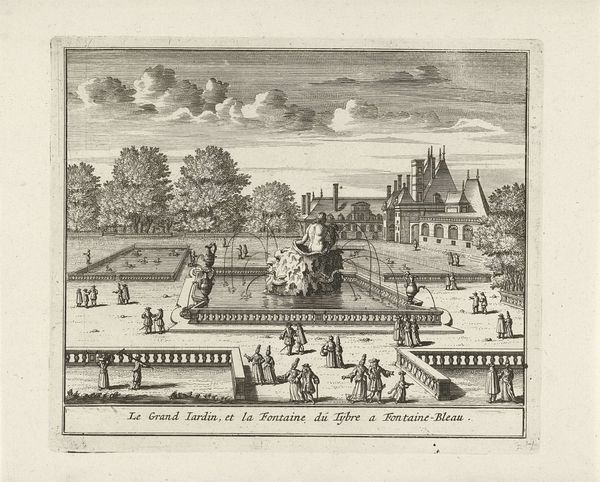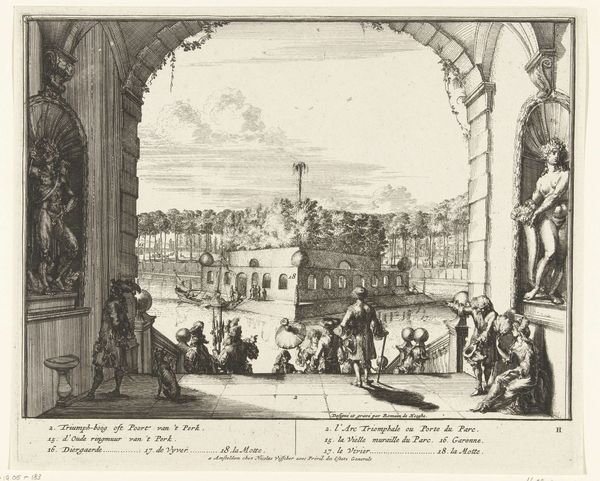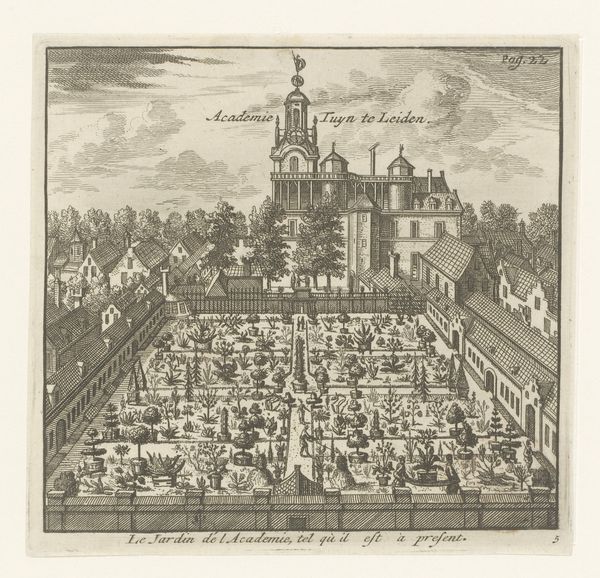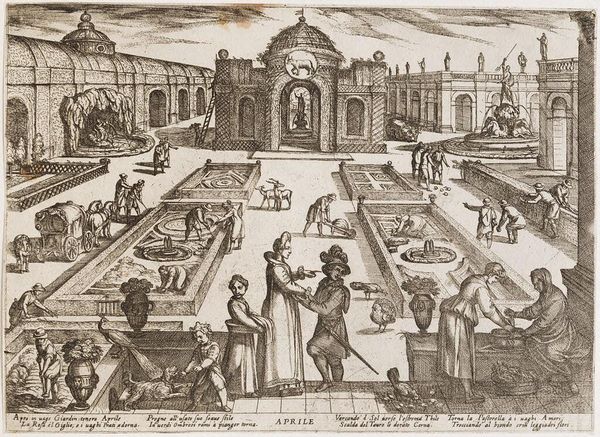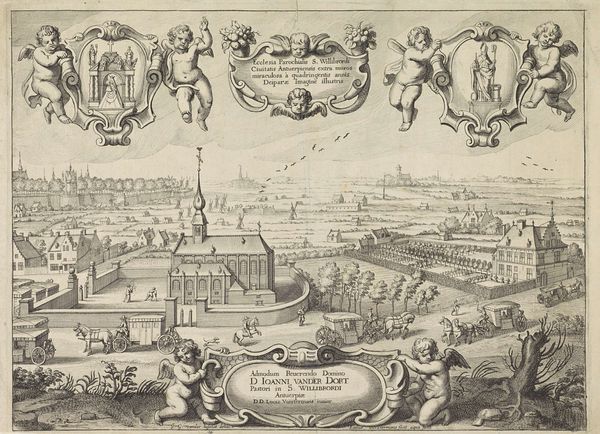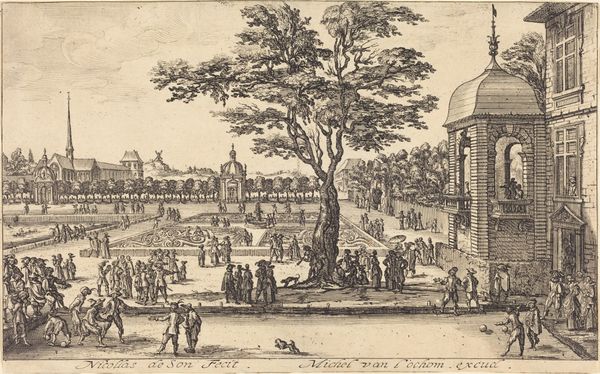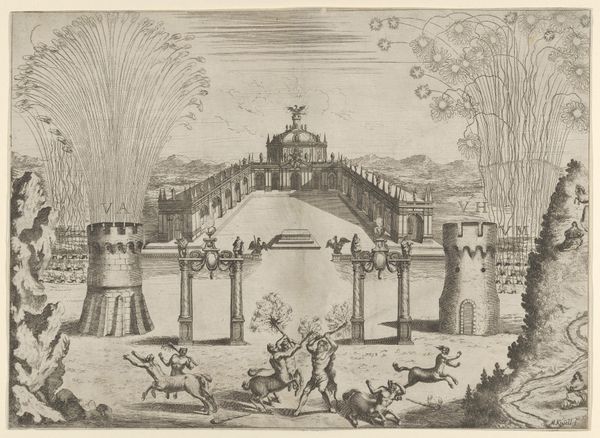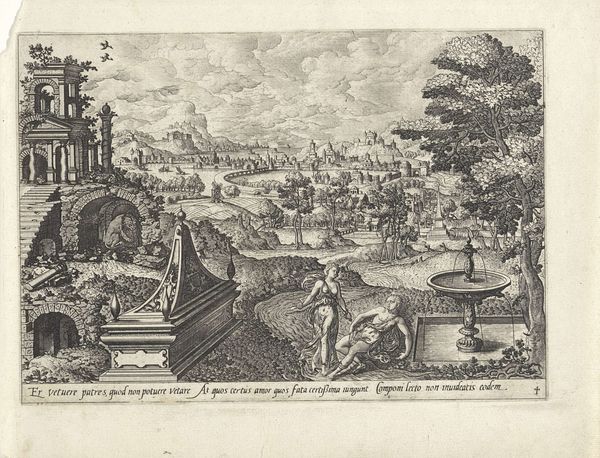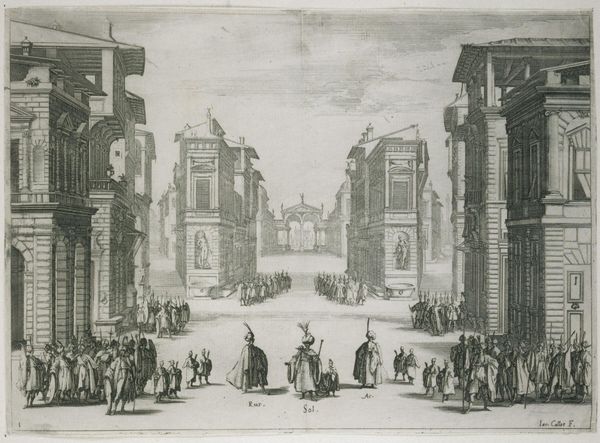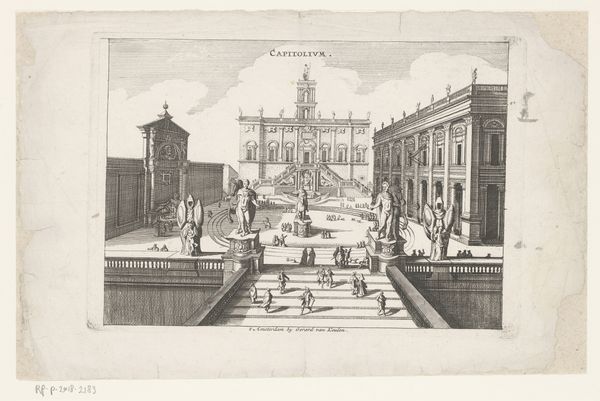
print, engraving
#
baroque
#
pen drawing
#
mechanical pen drawing
# print
#
pen illustration
#
pen sketch
#
sketch book
#
landscape
#
personal sketchbook
#
pen-ink sketch
#
pen work
#
sketchbook drawing
#
park
#
cityscape
#
sketchbook art
#
engraving
Dimensions: height 129 mm, width 159 mm
Copyright: Rijks Museum: Open Domain
Romeyn de Hooghe made this print of the park of Enghien using etching, a printmaking technique, sometime before his death in 1708. The etching process allows for the creation of fine, detailed lines, evident in the intricate patterns of the formal gardens and the delicate rendering of the figures. The material reality of the etching medium – a metal plate, acid, and ink – is crucial to understanding the image. The artist would have painstakingly drawn the design into a wax-coated plate, then submerged it in acid. The acid bites into the exposed metal, creating recessed lines that hold ink. The print is then produced by pressing paper onto the inked plate. The resulting image is a testament to skilled labor, both artistic and physical. Yet, the print also speaks to the social context of its creation: the formal garden, an emblem of aristocratic wealth and power. This print collapses any assumed hierarchy between art and craft. The art lies in its conceptual realization, while the craft lies in the method, a complex process requiring dexterity and skill.
Comments
No comments
Be the first to comment and join the conversation on the ultimate creative platform.
